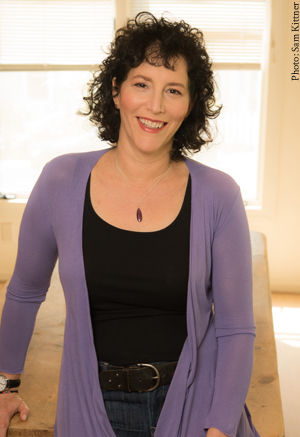Join a community of readers who are committed to Jewish stories
Sign up for JBC’s Nu Reads, a curated selection of Jewish books delivered straight to your door!
Earlier this week, Michelle Brafman wrote about the tahara, Jewish burial rituals. She is the author of the debut novel Washing the Dead and will be blogging here all week for Jewish Book Council’s Visiting Scribe series.
 I often assign my creative writing students the exercise of writing about a freighted or sacred physical space in their lives. I am also in the habit of writing to my own prompts, and this is how the mikvah found its way into my novel.
I often assign my creative writing students the exercise of writing about a freighted or sacred physical space in their lives. I am also in the habit of writing to my own prompts, and this is how the mikvah found its way into my novel.
Although I have friends who have submerged their bodies in these holy waters to convert to Judaism, heal from a surgery, or comply with the family purity rituals, I do not visit the mikvah. I’ve been fascinated with these waters, though, since I was a young girl and my friends and I would roam around our Orthodox synagogue during services, eating stale cookies set out for us in the kitchen and playing freeze tag in the alley. We were told to avoid a staircase off the side of the sanctuary at all costs. The steps led down to a sacred pool of water that the women immersed themselves in once a month. My mother did not go to the mikvah, so my limited knowledge of this ritual and my active imagination forced me to fill in the blanks.
We stopped attending shul regularly when I became a serious swimmer and replaced services with Saturday swim meets. I trained for them at our high school, which housed two pools: a shiny new one with a diving well and light flooding large glass windows, and an old narrow one with dark water and bad acoustics. We called this pool the dungeon, and we spoke of the boy who had died in these waters years ago. From that day on, I imagined the boy swimming with me when we practiced in the dungeon. Sometimes he scared me, and other times I welcomed his presence and wondered about his life before he passed.
My novel, Washing the Dead, is set in an Orthodox shul in Milwaukee. A mysterious benefactor has donated a large mansion along Lake Michigan to the community, complete with a swimming pool in the basement that the rabbi and his wife have converted to a mikvah. The book opens when the protagonist, Barbara, catches her mother smoking in the mikvah during Shabbat services, resulting in a shocking indiscretion for which the community exiles Barbara’s family. Barbara spends the rest of the book trying to forgive her mother, but first, she must solve the mystery of her mother’s attachment to these waters.
Water cries out to me. I’ve never lived more than a mile from a body of water, be it Lake Michigan, the Pacific Ocean, and now the Potomac River. In researching the mikvah and burial rituals featured in Washing the Dead, I came to understand the healing and purifying powers of water. It can hold both secrets and what is needed to repair their damage.
Michelle Brafman’s essays and short stories have appeared in the Washington Post, Slate, Tablet, Lilith Magazine,the minnesota review, and elsewhere. She teaches fiction writing at the Johns Hopkins MA in Writing Program. Visit her website at www.michellebrafman.com.
Related Content:
Michelle Brafman’s fiction and essays have appeared in The Washington Post, Slate, Tablet, and others. A regular contributor to the Lilith Magazine blog, she has led its salon discussions at theaters and arts centers throughout the Washington, DC area. She teaches fiction writing at Johns Hopkins University and lives in Glen Echo, Maryland with her husband and two children.